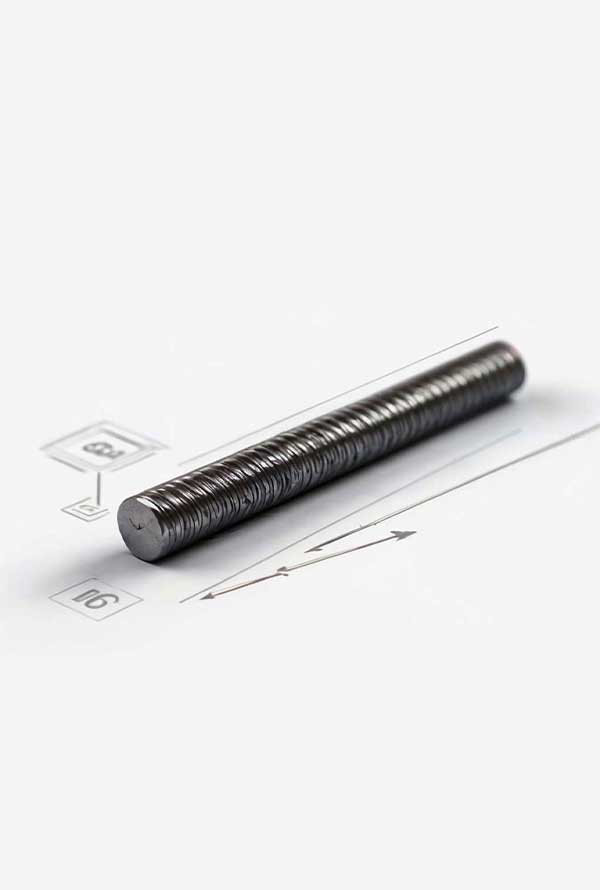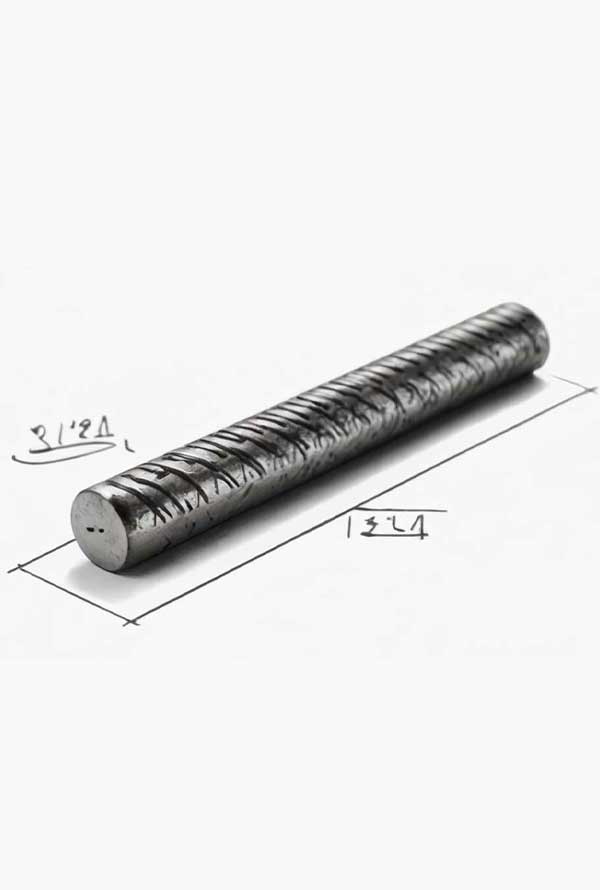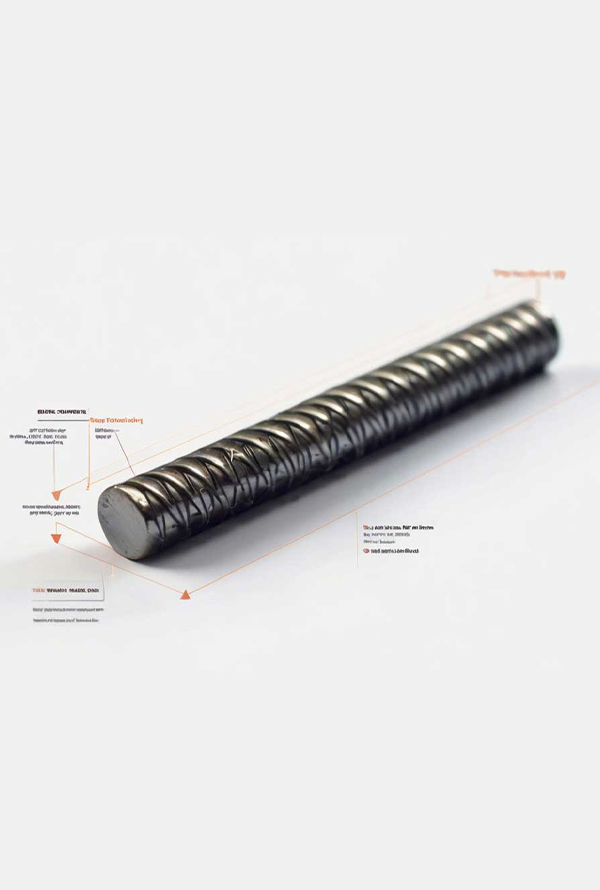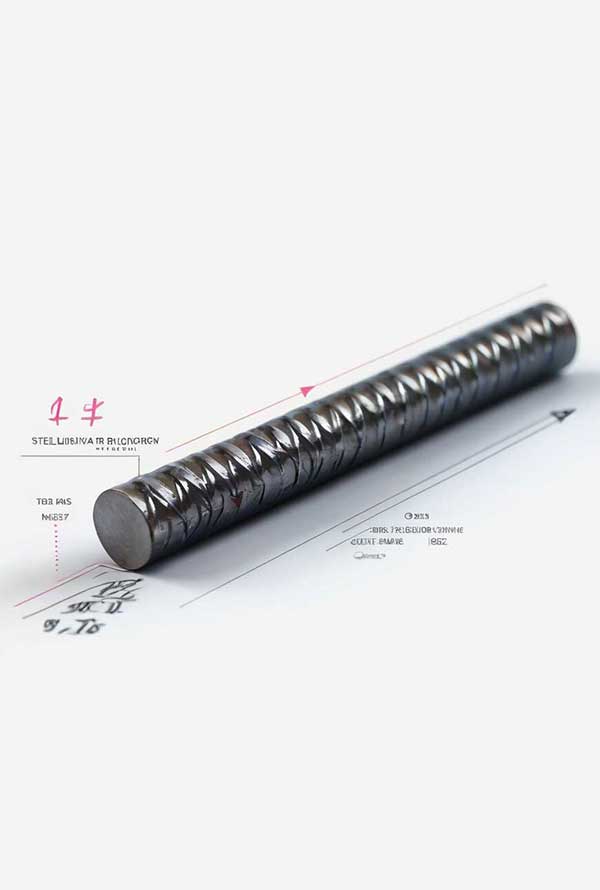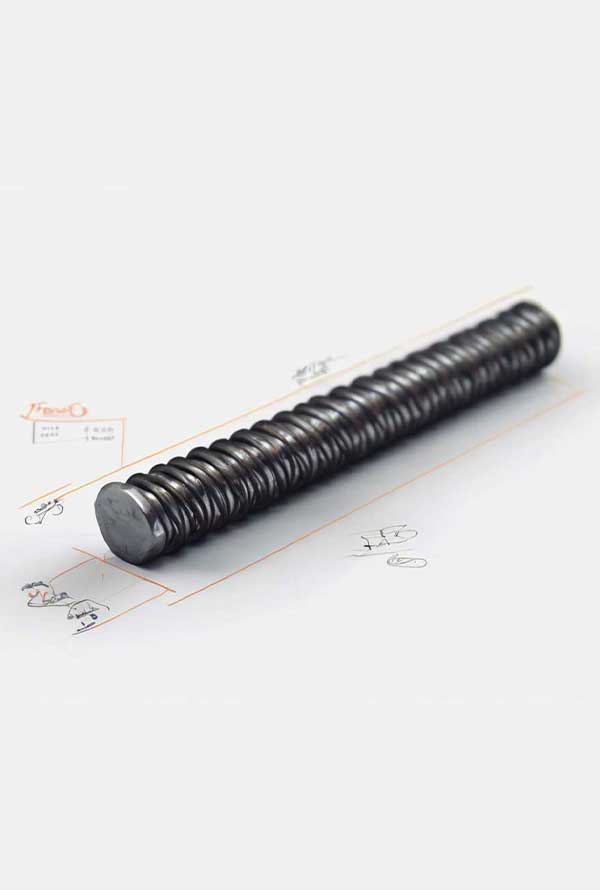Rebar 28 experiences significant price fluctuations. Various factors, including exchange rates, raw material prices, market supply and demand, government policies, and the country’s economic conditions, affect the price of rebar.
Price of Rebar 28 in the Market
To view the latest price of Rebar 28, visit the top of this page and join the Sirjan Hadid Steel Telegram channel to receive daily updates on prices. These price fluctuations make decision-making challenging for buyers and highlight the need to stay informed about the latest price changes.
Factors Influencing Rebar Price Fluctuations
The price of rebar, as one of the essential commodities in the construction industry, is influenced by numerous complex factors. Fluctuations in exchange rates, especially the US dollar, directly affect production costs and, consequently, the final price of rebar due to the dependence of the steel industry on imported raw materials and equipment. The rising prices of raw materials such as sponge iron, scrap metal, and energy, which are key inputs in the steel production process, also directly impact production costs and rebar prices.
Moreover, increases or decreases in demand for rebar in the market, particularly during construction seasons, affect its price. Government policies in the steel industry, such as setting import and export tariffs, government support for producers, and regulations related to steel production and supply, can also impact rebar prices. Additionally, the overall economic conditions of the country, including inflation rates, economic growth rates, and the state of the capital market, affect consumer purchasing power and, consequently, demand for rebar. In summary, the price of rebar is influenced by a complex interaction of domestic and international factors, each playing a role in shaping the pricing trends of this product.
Technical Specifications of Rebar 28
Rebar 28, as one of the widely used steel products in the construction industry, has unique technical and mechanical properties that make it suitable for various applications in concrete structures.
Chemical Composition and Mechanical Properties
Rebar 28 is typically made from grade A3, which contains a moderate amount of carbon. This chemical composition provides the rebar with suitable strength and ductility. Some of the most important mechanical properties of Rebar 28 include:
– Yield Strength: The force at which the rebar transitions from elastic to plastic deformation; in other words, the rebar undergoes permanent deformation beyond this point.
- Tensile Strength: The maximum force the rebar can withstand before failure, indicating its ability to resist tensile forces.
- Flexibility: The rebar’s ability to deform without breaking, allowing it to resist sudden forces and local deformations.
- Fatigue Resistance: The rebar’s ability to endure repetitive and cyclical loading, which is crucial in extending the service life of structures where rebars face cyclical stress.**
Applications of Rebar 28
This rebar, due to its favorable mechanical properties and diverse applications, is widely used in many construction projects.
Rebar size 28, with high tensile and bending strength, is extensively used as a key element in reinforcing concrete structures. Its primary application is in the reinforcement of concrete frameworks. Reinforcements serve as the internal skeleton of structures, responsible for withstanding tensile and shear forces from loading, preventing cracking and damage to the concrete.
Additionally, size 28 rebar is used in strengthening building foundations, bridges, and industrial structures with high load capacity, constructing thick concrete walls, building industrial floors, high-rise buildings, and producing stirrups and trusses for lateral support in columns and beams. Furthermore, this rebar is used in constructing heavy industrial structures such as oil platforms, factories, and large bridges due to its high strength and durability. In summary, Rebar 28, as a durable and versatile element, plays a crucial role in enhancing the strength and longevity of concrete structures.
Advantages of Using Size 28 Rebar
Rebar 28, as one of the widely used steel products in the construction industry, offers numerous advantages. This rebar significantly increases the strength and stability of structures due to its high tensile and compressive strength. Additionally, its suitable flexibility facilitates reinforcement work in various and complex construction conditions.
Another advantage of Rebar 28 is its excellent adhesion to concrete. The ribs on the rebar’s surface create a strong bond between steel and concrete, preventing the rebar from slipping within the concrete. Furthermore, the easy availability and abundance of this type of rebar in the market have made its use in construction projects widespread. In summary, Rebar size 28, due to its combination of suitable mechanical properties, good adhesion to concrete, and availability, is considered one of the best options for reinforcing concrete structures.
Comprehensive Guide to Buying Size 28 Rebar
Given the importance of this product in construction projects, familiarity with the technical specifications, types, and applications of size 28 rebar is essential for its optimal and correct selection.
Factors Influencing the Selection of Rebar 28
Rebar, as one of the primary elements in constructing concrete structures, varies widely in its properties and technical specifications. The rebar grade, which reflects its quality and mechanical properties, is particularly important. Each rebar grade has unique chemical compositions and mechanical properties that affect its tensile strength, yield point, and ductility.
Additionally, the type of ribs on the rebar surface, whether helical or crescent-shaped, plays a significant role in increasing the adhesion between rebar and concrete and thus enhancing structural strength. The depth and shape of the ribs also impact the rebar’s adhesion and tensile strength. Furthermore, rebar production must adhere to national and international standards to ensure its quality and safety.
Choosing the type and grade of rebar for each construction project is determined based on loads, environmental conditions, and design requirements. For example, using rebar with a higher grade and tensile strength is essential for structures under heavy loads. Therefore, a detailed understanding of the properties and technical specifications of various rebars is critical for selecting the most suitable rebar for each construction project.
Steps in Selecting Size 28 Rebar
The correct selection of size 28 rebar for construction projects requires attention to various factors. Initially, based on the structure type, imposed loads, and environmental conditions, the appropriate rebar grade should be chosen. The grade reflects the quality and mechanical properties of the rebar and directly impacts the structure’s strength and durability. Ensuring compliance with national and international standards also guarantees its quality and safety.
Moreover, the type of ribs on the rebar should be chosen based on the type of concrete and environmental conditions to establish proper adhesion between the rebar and concrete. Comparing prices offered by different suppliers is also essential to select the most cost-effective option. Finally, consulting with the project supervising engineer before the final purchase is recommended to ensure the best type of rebar for the project. The supervising engineer, based on technical calculations and precise knowledge of the project conditions, can recommend the best rebar option.
Technical Specifications and Standards for Size 28 Rebar
Size 28 rebar, as one of the most widely used steel products in the construction industry, is used in numerous construction projects due to its suitable mechanical properties and diverse applications. This section provides a detailed examination of the technical specifications, types of ribs, and related standards for this type of rebar.
Technical Specifications of Size 28 Rebar
– Grade: Typically, size 28 rebar is made from grade A3.
- Yield Stress: 4000 kg/cm²
- Ultimate Tensile Strength: 6000 kg/cm²
- Plastic Deformation: 14%
- Rib Shape: Chevron-shaped (in the form of 7 and 8)
- Weight per Meter: 4.83 kg (according to Stahl standards)**
Types of Ribs on Rebar 28
**- Transverse Ribs: Positioned diagonally to the longitudinal axis of the rebar, they enhance adhesion between the rebar and concrete.
- Longitudinal Ribs: Uniformly distributed along the length of the rebar, they improve the rebar’s mechanical properties.**
Production Standards
The production of size 28 rebar must conform to national and international standards. In Iran, National Standard No. 3132 is the primary reference for rebar production and quality control. This standard defines the technical specifications, dimensions, ribs, and other characteristics of rebars.
Importance of Standards Compliance
Adhering to production standards ensures the quality and safety of rebars. Using standard-compliant rebars significantly increases the lifespan of structures and reduces maintenance costs.
Mechanical Properties of Rebar 28
Rebar 28, as a widely used steel product in the construction industry, plays a vital role in increasing the strength and stability of concrete structures. Familiarity with the mechanical properties of this type of rebar is essential for design engineers and construction supervisors to make accurate and optimal choices.
Table Comparing Mechanical Properties of Various Rebars
| Rebar Grade | Tensile Strength (MPa) | Bending Strength (MPa) | Yield Strength (MPa) | Elongation (%) |
|---|---|---|---|---|
| A1 | 2400 | 3600 | 1600 | 12 |
| A2 | 3000 | 4200 | 2000 | 14 |
| A3 | 4000 | 6000 | 2400 | 16 |
| A4 | 5000 | 7000 | 3400 | 18 |
Interpretation of the Table
**- Rebar Grade: Indicates the quality and mechanical properties of the rebar. Higher grades correspond to higher tensile, bending, and yield strengths.
- Tensile Strength: The maximum force the rebar can endure without breaking.
- Bending Strength: The rebar’s ability to withstand bending loads without failure.
- Yield Strength: The force beyond which the rebar undergoes plastic deformation.
- Elongation: The relative deformation of the rebar before breaking.**
Rebar 28 (Grade A3)
As observed in the table, size 28 rebar is typically produced from grade A3. This type of rebar has a tensile strength of 4000 MPa, a bending strength of 6000 MPa, and a yield strength of 2400 MPa. Additionally, its elongation percentage is 16%. These mechanical properties make rebar 28 suitable for use in various concrete structures, including residential, commercial, and industrial buildings.
Conclusion
Purchasing Rebar 28 from Sirjan Hadid Steel Factory is a smart choice for your construction projects due to its high quality and affordable price. Adhering to national and international standards, this product ensures the durability and safety of your structures. For purchase consultation and the latest prices, contact our experts and move forward with your project with peace of mind.
